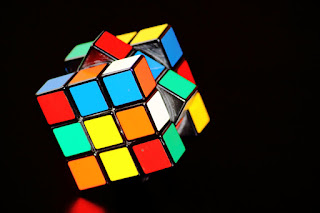Marilee Adams, Ph.D. is a leading expert on Question Thinking. Before I was introduced to her, and the power of questions at ADDCA, I had never considered how impactful the humble question could be. The style of coaching I was taught is powered by questions in the same way cars are powered by gasoline. I cannot imagine movement without it.
There are some questions that have impacted me positively more than others. The thoughts, revelations, and actions that sprang from them helped shape who I am today and assisted me in accomplishing everything I've achieved.
#1: “What is this emotion trying to tell me?”
I have learned that emotions can be viewed as messengers. They come to us to indicate something is seeking our attention. I always resolve issues faster when I ask myself this question.
#2: “When do I feel most at peace?”
This question is relatively new to me. It challenges my assumptions about what others say is needed for peace, because it is an intensely personal concept. I discovered the answer, right now, is “when I am most productive”. This has assisted me in motivating myself to do things that aren't fun for me.
#3: “What do I need?”
One of the more complex but vital questions I've ever been posed. Luckily I am almost always able to answer it, when I pause to ask.
#4: “What can I do without?”
Speaking of things that aren't fun. Answering this question, or rather discovering the answer when I continually make the choice to pursue running my own business instead of applying for a ‘real job’, has been one of the most challenging things I've ever done. That and truly coming to terms with the answers.
#5: “What is my definition of the difference between want and need?”
The vital word here is ‘my’, just like #2. It doesn't matter what others think. How do I define want and need? I've written blog after blog, chasing my answer.
#6: “Why am I doing this?”
Although ‘why’ can be interpreted as accusatory, I find it helpful. When I ask myself this question, I can examine where my energy is best spent. This is of importance to me especially because ADHD struggles with efficiency.
#7: “What can I put up with?”
Similar to #4, this question empowered me to choose, rather than play the victim in difficult situations, it continues to help me face the choices I have, who to spend my time with, and what qualities I value and which harm me.
#8: “What do I require in someone I invest time in?”
Also on the same theme as #4 and #7, the idea that I could define what I required in any type of relationship came as a complete revelation to me. Even now it seems selfish, almost like I should be “grateful” for any social interaction. However, it has empowered me to enact boundaries and seek out healthy relationships.
#9: “What is the most important quality in a partner, for me?”
Again, this question centers around my opinion being of utmost importance, as it pertains to my life. Others say gifts of flowers, chocolates, and jewelry are important, and for a time that opinion clouded my view. Now I've examined what truly is most important to me. Flowers didn't make the cut.
#10: “What is and is not important to me?”
This is another concept I had a relatively easy time answering, once I paused to ask it, and it's empowered me to be loyal to the true answers.
#11: “Why do others deserve kindness and not you?”
This question came from a dear friend and hit me like a ton of bricks. I still have no satisfactory answer, mostly because there is none, but the awareness I’ve gained has been invaluable to me.
When we ask questions, we can open a door to knowledge. Truth sets me free to build the life I need.
What questions have changed your life?

















